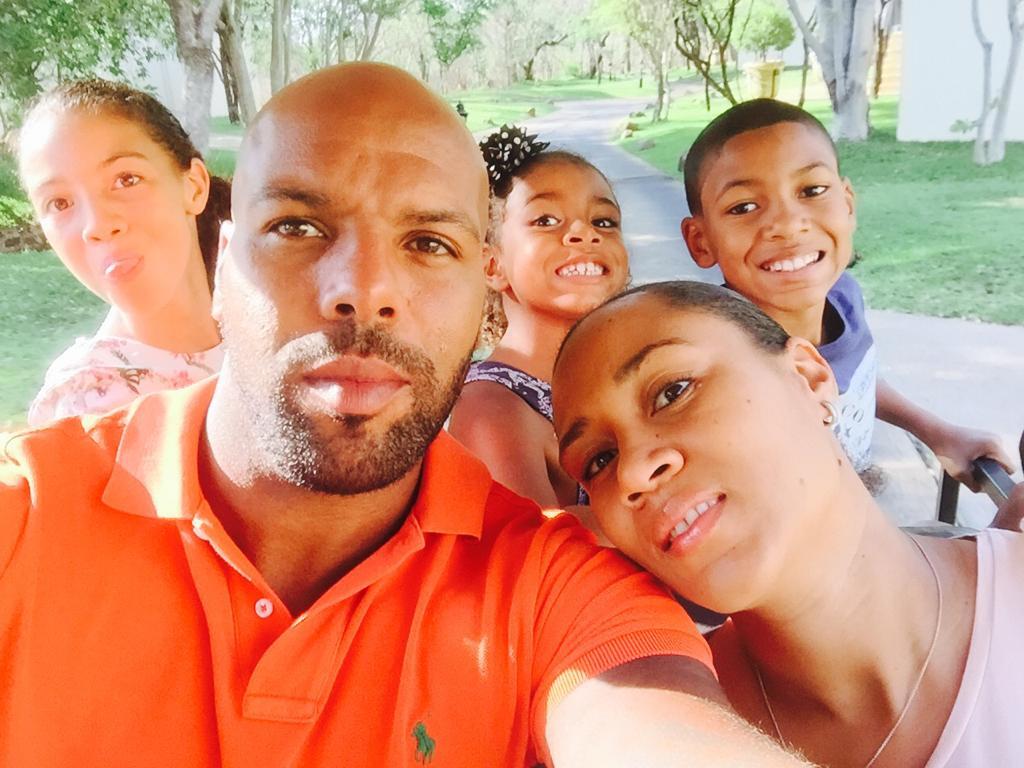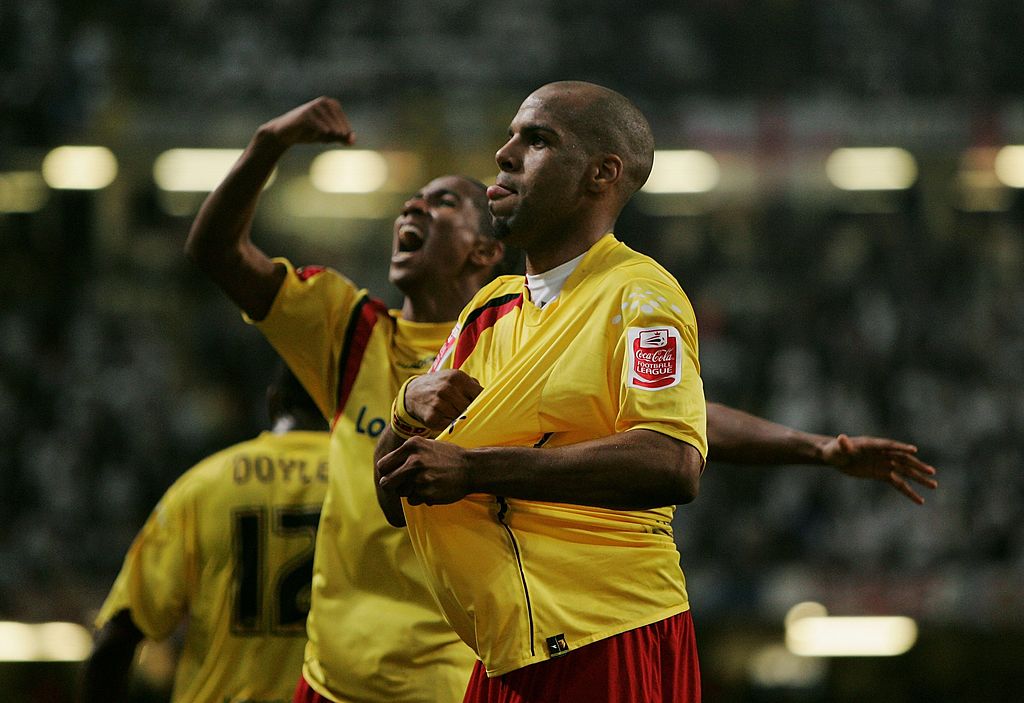“I can’t get back what I did. That’s the thing. I can’t go back,” Marlon King tells The Athletic. “Everything I’ve done is public knowledge. I can’t run away from it, so I can’t sit here and say, ‘No, I did this. I did that’. It has taken me years to try and figure myself out and work on myself.”
The man with the footballing and criminal past. But what of his present and future?
Advertisement
King speaks to The Athletic about why he thinks things went so catastrophically wrong off the field during his 15-year playing career, resulting in three separate 18-month prison sentences for receiving stolen goods, sexual assault, dangerous driving and a litany of other offences.
It’s seven years since he last played football and six years since he was last convicted in the UK. Now he lives 7,000 miles away. After his last sentence he moved to Zambia to set up home with his wife and three children. Away from the spotlight. Away from trouble.
“I cannot change what comes up on Google. I cannot change my path,” he says. “There’s no justification behind any wrongdoings. But my mental mindset right now could not be further from those incidents and those things. Even up to now, I’m finding speaking about issues that I had is therapeutic for me and I think is something I encourage everyone to do in all walks of life, because it helps.
“If you keep things in emotionally, it just builds up and you explode because everybody’s got a limit that they can take. And we give it the ego, ‘I’m alright, jack, no, we’re OK’ and I think that’s a lot of what I did. I had a lot of things going on, off the pitch. I can openly say I’m one of those people that needed to talk. I had a lot of things going on mentally, in terms of my emotions, and they reflected in the wrong way and affected people in the wrong way. I needed to make people understand that I am human and I did have a kind of self-destruct, self-addictive attitude. And it never reflected well.
“I don’t regret the decision to start playing football. I do regret a lot of decisions that I made that affected people’s lives negatively,” he adds. “And I’ve never really had the chance to do any sort of in-depth interview like this, or speak as such an open book, which is what I am now.”
Many people will feel King doesn’t deserve a platform. That’s wholly understandable. The attack on a woman in a nightclub in 2010 led to him being placed on the sex offenders register for seven years, along with his custodial term. Therefore, it’s important to highlight he did not seek the publicity but was asked if he wished to do an interview. There is no ulterior motive to him accepting. No book, tour or business venture he wanted to promote.
Advertisement
“I’m sorry for what happened, especially to the young lady and to my family members for letting them down,” he says. “But I’m at a point now where I can look back and think, ‘Jesus Christ. Some of the decisions I made’.”
Where he is now is a world away from where he grew up in Peckham, south London. His luxury home near Zambia’s capital Lusaka is set within a 200-acre estate. There’s a swimming pool, lake and waterfall amid the forests and trees.

King with his wife Julie and children Katai aged 16, Kia 11 and Camron 12 in Zambia
“When I came here, I felt the atmosphere and how peaceful it was,” says King. “Then, on top of it, the education system is the same if not better than the UK’s. So, apart from it being a lot slower, it made sense. Zambia is a very peaceful country and I just saw the way my wife (a former Miss Zambia) was raised in a two-parent home; just a nice balance that I wanted for my children because I never had that growing up, so I want to give them something different, until they get old enough and they can shift where they want when the time’s right.”
His eldest child is 16 years old now. King’s foundations were already fractured by the time he was that age.
“I saw my mum and dad fighting all the time. They broke up when I was very young and I moved out when I was 14, got my own place when I was 16, and I never really had that sort of guidance, that reassurance,” he explains. “I was kind of always my own man and I think I always had a self-destruct button. I was one of those kids that if I saw the red alarm in the hallway at school that says, ‘Don’t press’, I was the one that would go and press it. Some of the things I was doing; I saw happen so I almost thought it was OK. I grew up around people doing the wrong things and I thought they were OK. That was part of my make-up. Nobody told me, ‘No, this is not right’. It took me a long while to find out that it’s not normal.”
Advertisement
Although wrongdoing wouldn’t be far away for King at a young age, enterprise was also part of his make-up too. He wanted to make money and became a wheeler-dealer.
“I had a paper round at nine years old in Peckham. If it came down to buying ice lollies from Happy Shopper, to selling them for 50p more at school — I used to buy the Loot newspaper and buy computer games and bits and bobs, readvertise it, make £30, then save. I’ve always been like that. You ask anyone that knows me; I’ve always looked for a bargain or something of value which I could utilise.”
From the age of 17, he was in trouble with the law. During the time he was first attracting the attention of scouts playing for Dulwich Hamlet, he was given a community order and fine for wounding an opposition player. There was subsequent punishments for theft and drink driving before, having made the transition into league football via Barnet, he was jailed for receiving a stolen car whilst at Gillingham. Loan spells at Leeds and Watford (below) followed once he moved on to Nottingham Forest. Two offences involving women came next: common assault and threatening behaviour. He was stuck in a cycle of bad behaviour that he says was exacerbated by returning to his roots.

“I didn’t know how to separate between being a footballer and then going back and trying to appease the friends that I grew up with,” he says. “That’s one thing you can’t do in terms of when you’re in the limelight. I didn’t know how to adjust. I was going back down to London and that was one of my biggest pitfalls.
“You’ve got the term of ‘keeping it real’ but what is keeping it real? I look back at it now and I think, ‘Jesus Christ. What does that mean?’. You can’t mix with people that are doing the wrong stuff and then go on to play a Premier League game. I’d say it to anyone now, don’t be afraid to have that selfish mentality to say, ‘No, I need to switch off because I want to change my life and I want to change people’s lives around me as well’.”
The standout season of his career was 2005-06. Having moved permanently to Watford for £500,000, his 22 goals in 45 games contributed hugely to the club’s promotion to the top division. He says manager Aidy Boothroyd got the best from him as he was like a “father figure”. The opportunity to prove himself at the top level would only last eight games, including an impressive long-distance strike against West Ham in the second match of the season, before a knee injury ruled him out for six months. Following relegation, he scored 11 goals in 28 appearances before his switch back to the Premier League with Wigan for £3 million.
He never fully flourished as a Premier League performer. Whilst a Wigan player — including two loan spells at Hull and Middlesbrough — he scored eight goals in 54 appearances. The drunken assault of a woman in a bar in Soho, which resulted in his second prison term, occurred when he was at Hull. His wife decided to stick with him. He’s aware the stigma attached to the attack will never leave him.
Advertisement
Facing up to his mistakes and “growing as a human being”, he says, have meant confronting difficult conversations with his family.
“When my daughter asks me about stuff, those are more challenging questions than any reporter or any fan. You’ve got your own daughter saying, ‘Dad, what happened?’. I can’t run away from it,” he says. “I know that I have to take responsibility. I have to answer. I have to look at it. I’ll speak to my son and say, ‘There are certain things you have to avoid’, so I don’t look at it as such a negative and let it get me down. I just go, ‘OK, how can I let these youngsters know about the pitfalls that I had, and use it in a positive manner?’
“It can stop a whole load of problems going forward. And that’s one thing I’ve learned, especially with my wife — we talk about everything. There’s no getting away from it. That was one of my main problems. I didn’t know how to turn the switch off. And if you look at the players that have had a really great career, the difference is they might not have had more ability than you but they know how to turn the switch off: when not to go to clubs, when to stay out of a certain crowd, watch those around. All of these things are vital to making you go to the top level and stay out of trouble.”
After leaving prison, he was given another chance to repair his career by Boothroyd at Coventry, then had two productive seasons at Birmingham in the Championship, scoring 32 goals in 79 appearances before ending his career with a short spell at Sheffield United, where he played his last game in November 2013. His conviction for dangerous driving soon followed, before his move to Zambia. But even though his career had been blighted, he managed to continue his childhood entrepreneurial spirit throughout his playing days and is reaping the benefits now. He runs a heavy-duty machinery hire company, has land and property investments in the UK and Zambia including owning a shopping mall and fisheries.
“Everybody outside will look at me and want to judge me from the stories out there — rightly so,” he says. “But when you get to know me, I’m pretty switched on. And as much as I’ve made wrong decisions, I’ve made a lot of right decisions not just for me but the future of my family. When you’re cruising, you get sometimes stuck in a bubble to think it’s never going to come to an end and everything’s going great. As the clock winds down and your income becomes shorter but your outgoings become longer, it’s like an aeroplane in the air with no wheels. It’s alright when it’s flying but once the fuel runs out, it has to come to land. We’ve always been pretty clued up in terms of knowing that football wasn’t going to last forever, so while we have had the income, we did invest.”
Now 40, he accepts that he is still a “work in progress”.
“Everyone has their own issues and one thing I’ve taken out of life is the only thing perfect in life is imperfection,” he says. “I’m learning all the time.”
(Top photo: Simon Cooper/PA Images via Getty Images)
